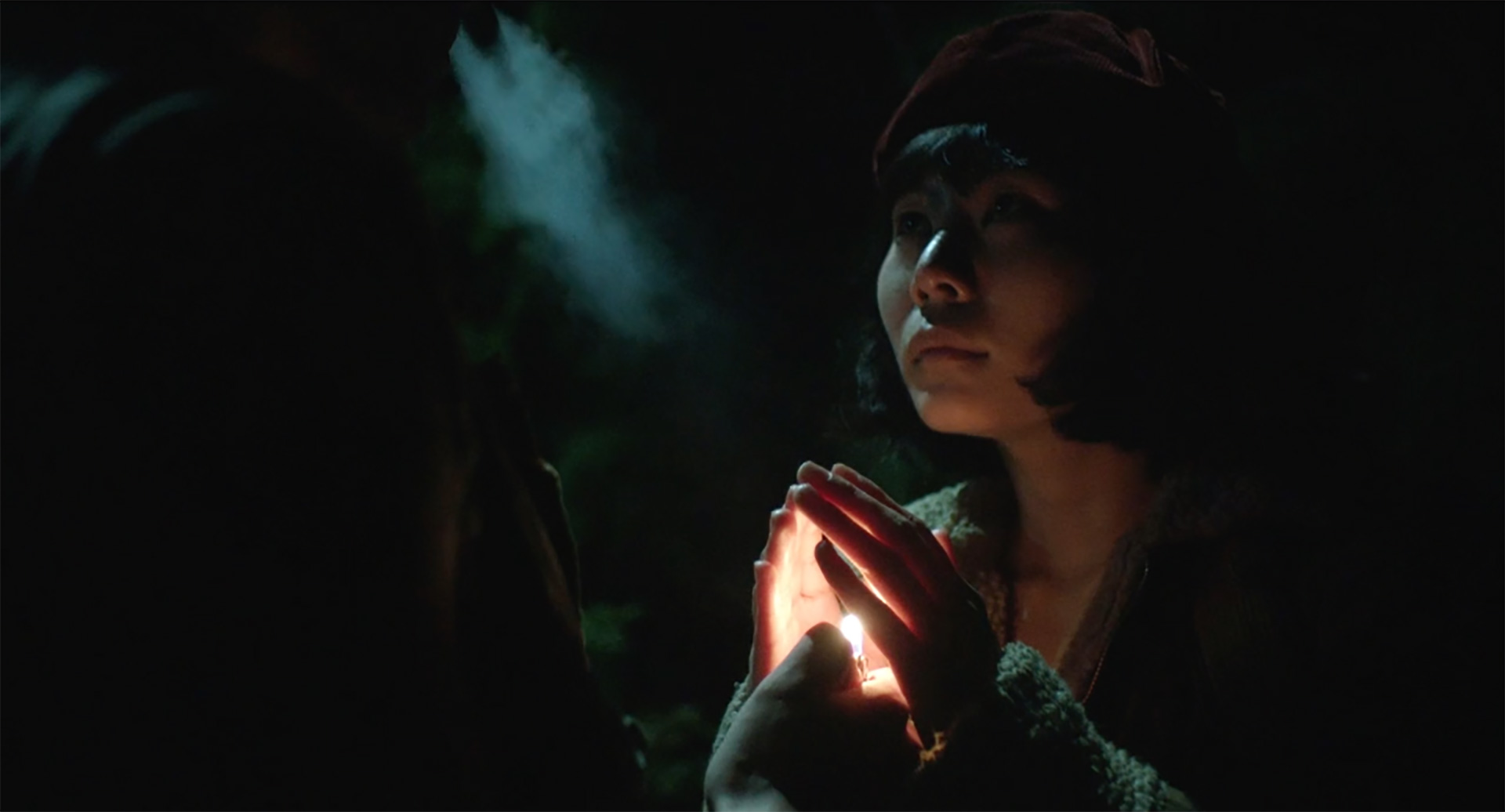Baby (Zita Bai) is a seventeen-year-old Chinese immigrant surviving on the fringes of her community. She’s a voyeur—always with camera on to capture the dialogue and actions of others so she can better mimic how to act and “fit in.” That she also photographs animal carcasses and death with excitement might make that sort of assimilation tough, but she’s not really interested in those that would dismiss such a thing without context. It’s not until she meets Fox (Vas Provatakis) that Baby finally sees someone worth the effort to let the full breadth of her eccentricity become visible. He’s a drug dealer who parties hard, has zero respect for anyone around him, yet finds himself enamored by her singular mystique.
Director Jesse Dvorak says he wanted to bring his coming-of-age filmmaking sensibilities to the unique immigrant experience written by Bai herself. And that goal does come to fruition in many ways you’d expect, courtesy encounters with bullies, the exposure of a very volatile home life (with Helen Sun as her mother), and the toxic love that binds Baby to Fox despite the inevitable pain its perpetual cycle of psychological violence manifests. Baby, Don’t Cry is nothing if not a series of universally resonant vignettes tied together by wild shifts in tone and emotion. One second Baby is the happiest she’s ever been; the next it’s as though the ground opened to swallow her whole. Our hope as viewers is thus discovering purpose.
I’m at a loss where that discovery is concerned—it’s difficult to see any beyond the superficial notion that Baby is caught in a desperate scenario from which she cannot escape. “Superficial” because every time it seems we’re going to learn something deeper, Dvorak leans on a distraction that only destroys the momentum he’d built. This dance eventually gets so convoluted that I’m not sure what was real at all. Were I to guess, everything after Baby discovers the camera she just stole was subsequently stolen (by Fox) is a figment of her imagination. The good, bad, weird, etc. Everything. While that helps certain things make more sense, it also ruins others.
Because Baby does reenter the “real world” amidst her playdates with Fox and the danger, sex, and anarchy he provides. She returns to her job as a housecleaner for a vapid, rich woman. She returns home where there’s a 50-50 chance her mother is catatonic and in need of a sponge bath or ready to physically assault her for daring to leave like her father. How much of that is real, though, when Baby’s Mom is shown with pig ears making pig sounds? How much of the flashbacks (courtesy full-frame digital recordings and widescreen memories) are real once format and content come at odds with each other? Did Dad leave or die? Does this family have fairy-tale genetics or is it all a metaphor?
That we can never tell is probably the film’s strongest aspect—it shows Bai and Dvorak’s desire to create sans handholding. This is a personal film created from a place of pain, excitement, and uncertainty, exuding all those things even if we have no idea what’s happening narratively. One could say we don’t need to know. As long as we get the sense of isolation that comes with being an “other” we have absorbed that which matters most. That Baby is just as prone to react with her own violence, provoked or not, thus works to show we’re all flawed humans yearning for answers in listless existences that seem doomed by fate. If we can hope love will free us, it rarely does.
How it’s all portrayed is simultaneously matter-of-fact and abstract, Baby’s vantage point an unreliable narrator with no person or thing able to start setting the record straight. It looks great and the acting is effective, but I couldn’t stop feeling as though I was being held at arm’s length from engaging with what I was seeing. Baby, Don’t Cry becomes meta, in a way; it almost seems like the film Baby would create upon moving to Los Angeles, as she dreams of doing. This is the chaotic, frustrating, and liberating adventure her psyche took as a teen to break free culturally and socially from an abusive family life to embrace adulthood—even if it too conjured similar abuse. It’s cathartic, experimental poetry.
And that will surely be enough for some. Perhaps my not being an immigrant or woman means I simply can’t find the connection necessary to truly experience what Bai has created. This is a story constructed on her terms, and as such feels almost too personal to fully enter without the context of knowing what she and her onscreen surrogate do at any given moment. Maybe it’s as simple as understanding that some of us need to implode everything we’ve ever known in order to move forward. Baby lights fire to her childhood by way of Fox, then sets him ablaze once their tenuous balance is threatened with acknowledging that rebellion is rarely ignited on one’s own terms. It’s time for a true fresh start.
Baby, Don’t Cry is playing at the Fantasia International Film Festival.

